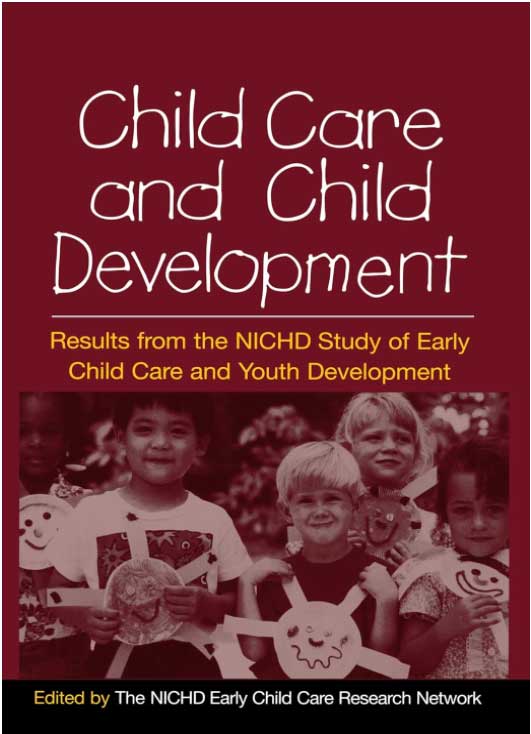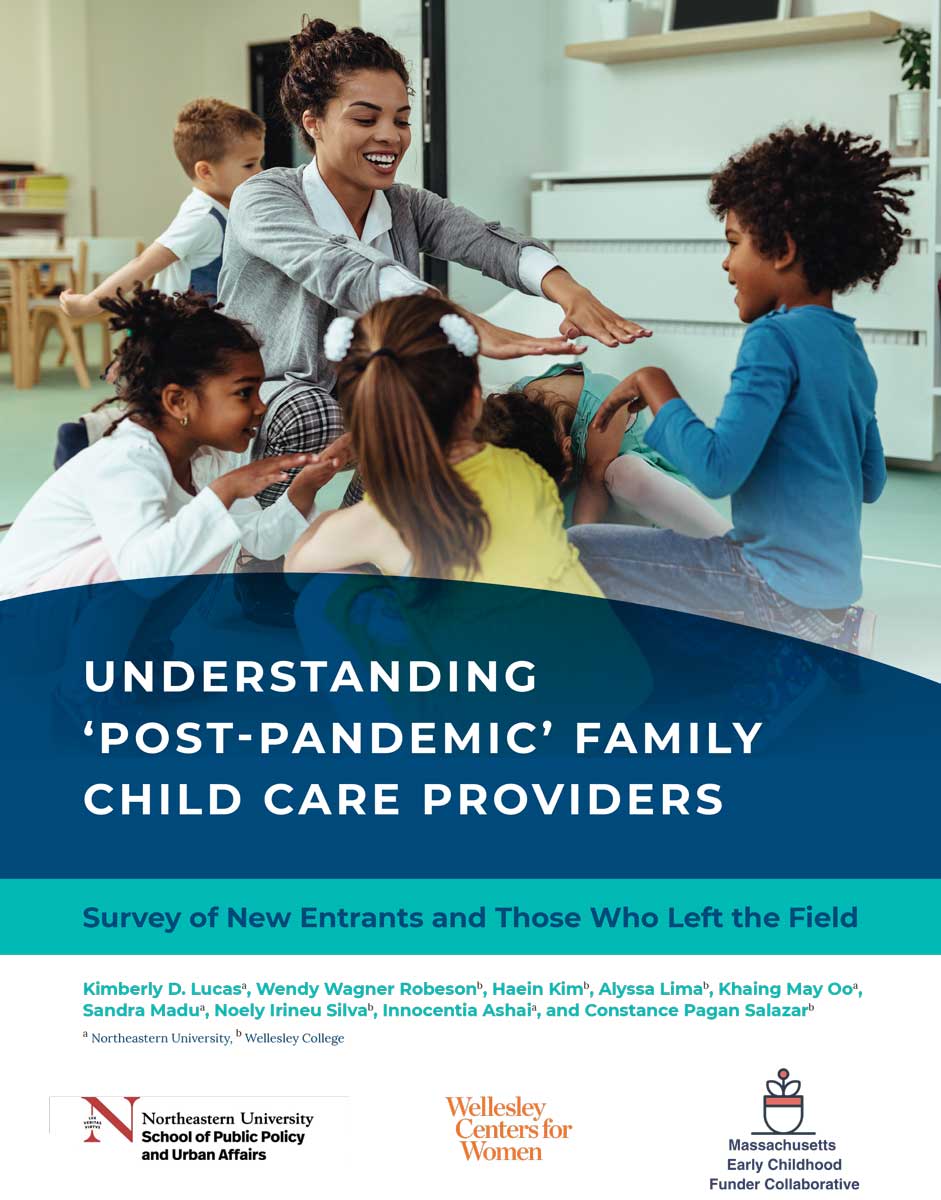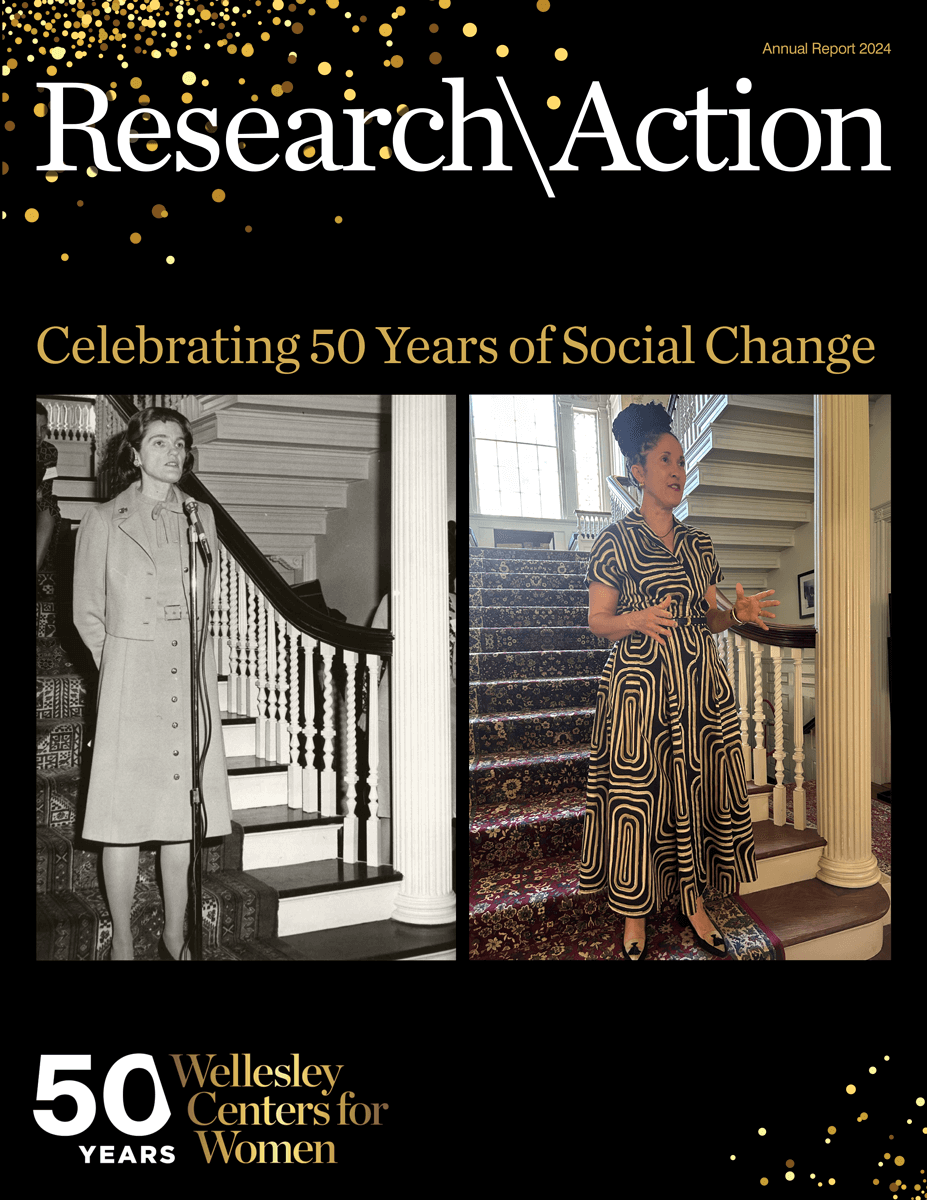Then: NICHD Study of Early Child Care and Youth Development
 The National Institute of Child Health and Human Development (NICHD) Study of Early Child Care and Youth Development was a massive national effort from 1991–2009 to examine how differences in child care experience relate to children’s social, emotional, intellectual, and language development, and to their physical growth and health. It decisively answered the question of whether or not child care harms children, and, by implication, whether women could participate in the workforce without guilt—a key question of the women’s movement. The study revealed that child care, particularly high-quality child care, does not harm children and, in some respects, is beneficial. The impact of this study on the lives of women and families at all levels of society was tremendous.
The National Institute of Child Health and Human Development (NICHD) Study of Early Child Care and Youth Development was a massive national effort from 1991–2009 to examine how differences in child care experience relate to children’s social, emotional, intellectual, and language development, and to their physical growth and health. It decisively answered the question of whether or not child care harms children, and, by implication, whether women could participate in the workforce without guilt—a key question of the women’s movement. The study revealed that child care, particularly high-quality child care, does not harm children and, in some respects, is beneficial. The impact of this study on the lives of women and families at all levels of society was tremendous.
Nancy L. Marshall, Ed.D., Wendy Wagner Robeson, Ed.D., Kathryn A. Wheeler, Ed.D., Elizabeth Starr, M.Ed.
Now: Getting Family Child Care Providers Into the Field—and Keeping Them There
 Today’s concerns about child care are largely about quality, access, and affordability, which are closely related to the number of available providers. During the COVID-19 pandemic, the child care sector in the U.S. faced a massive loss of skilled early educator talent. For family child care providers (FCCs)—what parents might call an at-home daycare—the crisis pre-dates the onset of the pandemic, with a staggering 52% decline nationally between 2005 and 2017.
Today’s concerns about child care are largely about quality, access, and affordability, which are closely related to the number of available providers. During the COVID-19 pandemic, the child care sector in the U.S. faced a massive loss of skilled early educator talent. For family child care providers (FCCs)—what parents might call an at-home daycare—the crisis pre-dates the onset of the pandemic, with a staggering 52% decline nationally between 2005 and 2017.
“On the one hand, the issue has been raised to national consciousness: people are much more aware that the child care sector is in deep need of reform,” said WCW Senior Research Scientist Wendy Wagner Robeson, Ed.D. “But on the other hand, those who work in the field and those who are considering entering the field are much more aware of how undervalued they are, and that affects their decision to enter or stay in the field.”
Massachusetts still saw new family child care providers in the years following 2020, one of the most difficult times to enter the field. These new entrants can offer insight into the field’s value— what makes it worthwhile to become a family child care provider? For those who left, what are some of the persistent challenges?
To get at the answers to these questions, Robeson and Kimberly D. Lucas, Ph.D., Professor of the Practice in Public Policy and Economic Justice at Northeastern University, in partnership with the Massachusetts Department of Early Education and Care (EEC), developed a two-part, mixed methods study funded by the Massachusetts Early Childhood Funder Collaborative. Their overarching goal was to understand how EEC and other statewide partners can strengthen and improve recruitment and retention experiences for family child care providers as we emerge from the pandemic.
Based on their key findings, both from a survey of new entrants to the field and from focus groups of those who left the field, Robeson and her team made a series of recommendations for EEC and other key actors in the early childhood ecosystem. These recommendations include better communication and provision of business support and digital literacy support, development of mentoring programs, and the cultivation of trusting relationships with licensors.
“We found that whether they’ve been in the field for a year or 30 years, family child care providers continue to experience the joys of working directly with young children and families—and the challenges of low compensation, the digital divide, navigating tensions within and beyond work relationships, and the need for more business support,” said Robeson. “We learned that FCCs who left the field don’t just have stories about what went right or wrong during their tenure, they also can offer innovative and implementable solutions. And their experience through the COVID-19 pandemic serves to provide us with some practical preventive changes that can be implemented now.”
Read the full report: Understanding ‘Post-Pandemic’ Family Child Care Providers: Why New Providers Entered the Field and Why Others Left


